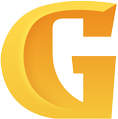KINGSOFT(03888)
Search documents
金山软件(03888.HK)12月22日耗资999.7万港元回购35.4万股

Ge Long Hui· 2025-12-22 10:52
格隆汇12月22日丨金山软件(03888.HK)公告,12月22日耗资999.7万港元回购35.4万股。 ...
金山软件(03888)12月22日斥资999.7万港元回购35.4万股

智通财经网· 2025-12-22 10:48
智通财经APP讯,金山软件(03888)发布公告,该公司于2025年12月22日斥资999.7万港元回购35.4万股股 份,每股回购价格为28.16-28.32港元。 ...
金山软件12月22日斥资999.7万港元回购35.4万股

Zhi Tong Cai Jing· 2025-12-22 10:48
金山软件(03888)发布公告,该公司于2025年12月22日斥资999.7万港元回购35.4万股股份,每股回购价 格为28.16-28.32港元。 ...
金山软件(03888) - 翌日披露报表

2025-12-22 10:44
FF305 翌日披露報表 (股份發行人 ── 已發行股份或庫存股份變動、股份購回及/或在場内出售庫存股份) 表格類別: 股票 狀態: 新提交 公司名稱: 金山軟件有限公司 呈交日期: 2025年12月22日 如上市發行人的已發行股份或庫存股份出現變動而須根據《香港聯合交易所有限公司(「香港聯交所」)證券上市規則》(「《主板上市規則》」)第13.25A條 / 《香港聯合交易所有限公司GEM證券 上市規則》(「《GEM上市規則》」)第17.27A條作出披露,必須填妥第一章節 。 | 第一章節 | | | | | | | | --- | --- | --- | --- | --- | --- | --- | | 1. 股份分類 | 普通股 | 股份類別 | 不適用 | 於香港聯交所上市 | 是 | | | 證券代號 (如上市) | 03888 | 說明 普通股 | | | | | | A. 已發行股份或庫存股份變動 | | | | | | | | | | 已發行股份(不包括庫存股份)變動 | | 庫存股份變動 | | | | | 事件 | 已發行股份(不包括庫存股份)數 目 | 佔有關事件前的現有已發 行股份(不包 ...
智通港股回购统计|12月19日





智通财经网· 2025-12-19 02:24
Group 1 - The article reports on share buybacks conducted by various companies on December 18, 2025, with Tencent Holdings leading in both the number of shares repurchased and the total amount spent [1] - Tencent Holdings repurchased 1.055 million shares for a total of 636 million yuan, representing 1.030% of its total share capital for the year [2] - Other notable companies involved in the buyback include Xiaomi Group, which repurchased 3.75 million shares for 151 million yuan, and China National Petroleum Corporation, which repurchased 254,000 shares for 116.38 million yuan [3] Group 2 - The total number of shares repurchased by companies varied significantly, with China National Petroleum Corporation having a cumulative buyback of 230 million shares, which is 0.190% of its total share capital [3] - Companies like IGG and VITASOY also participated, with IGG repurchasing 182,000 shares for 68.49 million yuan and VITASOY repurchasing 122,000 shares for 77.94 million yuan [3] - The buyback activity reflects a strategic move by these companies to enhance shareholder value and manage their capital structure effectively [1][2]
金山软件龚道军:解码IP消费的核心逻辑
2 1 Shi Ji Jing Ji Bao Dao· 2025-12-19 00:38
Core Insights - The "New Consumption Conference" organized by 21st Century Business Herald is a significant event in the consumer industry, taking place on December 17 in Shanghai [1] Group 1: IP and Cultural Flow - Gong Daojun, Vice President of Kingsoft, delivered a keynote speech titled "The Coordinates of IP and Cultural Flow," emphasizing the lack of a common understanding of IP within the industry [3] - The speech aimed to clarify the core logic of IP and its development trajectory in the consumer sector through two paths: extracting commonalities of IP products from a classification perspective and outlining the development path of IP in the consumption field [3] - Gong proposed a "two-dimensional quadrant analysis" to categorize entertainment consumption IP products based on "narrative" and "interactivity" [4] Group 2: IP Product Classification - The classification includes four categories: 1. High narrative + high interactivity: represented by video games, providing strong immersion and engagement [4] 2. High narrative + low interactivity: such as movies and short films, where the audience primarily participates through viewing [4] 3. Low narrative + low interactivity: typified by trendy toys and blind boxes, which establish emotional connections through symbolic imagery [4] 4. Low narrative + high interactivity: certain sports products or game branches focusing on strong interactive experiences without complex story support [4] Group 3: Cultural Flow and IP Development - Gong reviewed the historical trajectory of foreign entertainment IP entering China and the reverse flow of Chinese IP abroad, highlighting key phases from the 1960s to the present [5] - He noted significant milestones, such as the entry of Japanese anime and Hollywood films in the 1980s and the rise of Korean culture in the 2000s, driven by technological advancements [5] - The success of Chinese IP overseas was illustrated through examples like Kingsoft's "Jian Xia Qing Yuan" capturing 70% market share in Vietnam and the emergence of new IP carriers like web literature translation platforms and short dramas [5] Group 4: Key Factors for Successful IP Dissemination - Gong identified three core elements for successful IP dissemination: 1. Undergoing systematic cultural refinement to form a resonant value core [6] 2. Having a complete localized production system [6] 3. Achieving production capacity overflow to support global outreach [6] - He highlighted two parallel paths for Chinese IP going global: targeting mainstream global markets with games and focusing on niche segments with trendy toys and web literature [6] Group 5: Future Outlook - Gong concluded that Kingsoft, as a technology enterprise growing alongside China's reform and opening-up, has significant potential for cross-industry integration in its office, gaming, and cloud services [6] - He expressed confidence that Chinese companies can create globally influential IP brands, facilitating cultural exchange between East and West [6]
金山软件龚道军:解码IP消费的核心逻辑|直击新消费大会
2 1 Shi Ji Jing Ji Bao Dao· 2025-12-19 00:31
Core Insights - The conference "New Consumption Conference" held on December 17 in Shanghai highlighted the significance of IP (Intellectual Property) in the consumer industry, with a focus on its definition and logic [1] - The speaker, Gong Daojun from Kingsoft, emphasized the need for a common understanding of IP and proposed a two-dimensional analysis method to categorize IP products based on narrative and interactivity [2][4] Group 1: IP Definition and Analysis - Gong Daojun stated that IP has become a frequent term, yet there is no consensus on its definition and logic within the industry [1] - He introduced a "two-dimensional quadrant analysis" with "narrative" and "interactivity" as axes to classify entertainment IP products [2] - The highest form of IP experience is represented by video games, which offer high narrative and high interactivity, providing strong immersion [2] Group 2: Cultural Flow and IP Development - The historical trajectory of cultural flow and IP consumption was reviewed, detailing the entry of foreign entertainment IP into China and the globalization of Chinese IP [4][5] - Key phases included early entry through Eastern European films in the 50s and 60s, the popularization of Japanese anime and Hollywood films in the 80s, and the rapid penetration of Korean culture post-2000 [4] - The gaming sector's evolution was highlighted, from arcade games in the 80s to the rise of online gaming in the 2000s, driven by technological advancements [4] Group 3: Chinese IP Going Global - Gong Daojun shared notable examples of successful Chinese IP going global, such as Kingsoft's "Jian Xia Qing Yuan" capturing 70% of the Vietnamese market in 2005 [5] - He identified three core elements for successful IP dissemination: cultural resonance, a complete localization production system, and the ability to scale globally [5] - Two main paths for Chinese IP going global were outlined: targeting mainstream global markets with games and focusing on niche segments with products like toys and web literature [5] Group 4: Future Outlook - Gong Daojun concluded that Kingsoft, as a technology company, has significant potential for cross-industry integration in areas like office software, gaming, and cloud services [6] - He expressed confidence that Chinese companies can create globally influential IP brands, facilitating cultural exchange between East and West [6]
金山软件(03888.HK)连续4日回购,累计斥资5142.33万港元

Zheng Quan Shi Bao Wang· 2025-12-18 14:19
Core Viewpoint - Kingsoft Software has been actively repurchasing its shares, indicating a strategy to support its stock price amidst recent declines [2][3]. Share Buyback Summary - On December 18, Kingsoft Software repurchased 176,800 shares at a price range of HKD 28.120 to HKD 28.400, totaling HKD 4.9986 million [2]. - The stock closed at HKD 28.260 on the same day, down 0.98%, with a total trading volume of HKD 166.7 million [2]. - Since December 15, the company has conducted buybacks for four consecutive days, acquiring a total of 1.8204 million shares for a cumulative amount of HKD 51.4233 million, during which the stock price fell by 2.55% [2]. Year-to-Date Buyback Activity - Year-to-date, Kingsoft Software has executed 22 buybacks, acquiring a total of 9.2458 million shares for a total expenditure of HKD 275 million [3]. - The detailed buyback activity includes various dates, share quantities, and price ranges, reflecting a consistent effort to stabilize the stock price [3][4].
金山软件(03888.HK)12月18日耗资499.9万港元回购17.7万股

Ge Long Hui· 2025-12-18 10:54
格隆汇12月18日丨金山软件(03888.HK)公告,12月18日耗资499.9万港元回购17.7万股。 ...
金山软件(03888)12月18日耗资约499.86万港元回购17.68万股

智通财经网· 2025-12-18 10:54
智通财经APP讯,金山软件(03888)公布,2025年12月18日耗资约499.86万港元回购17.68万股股份。 ...

